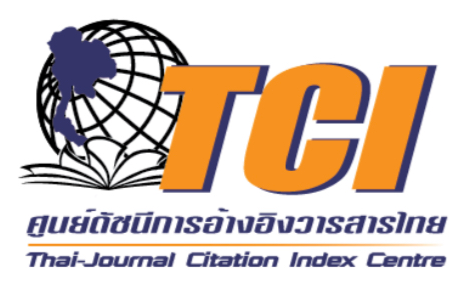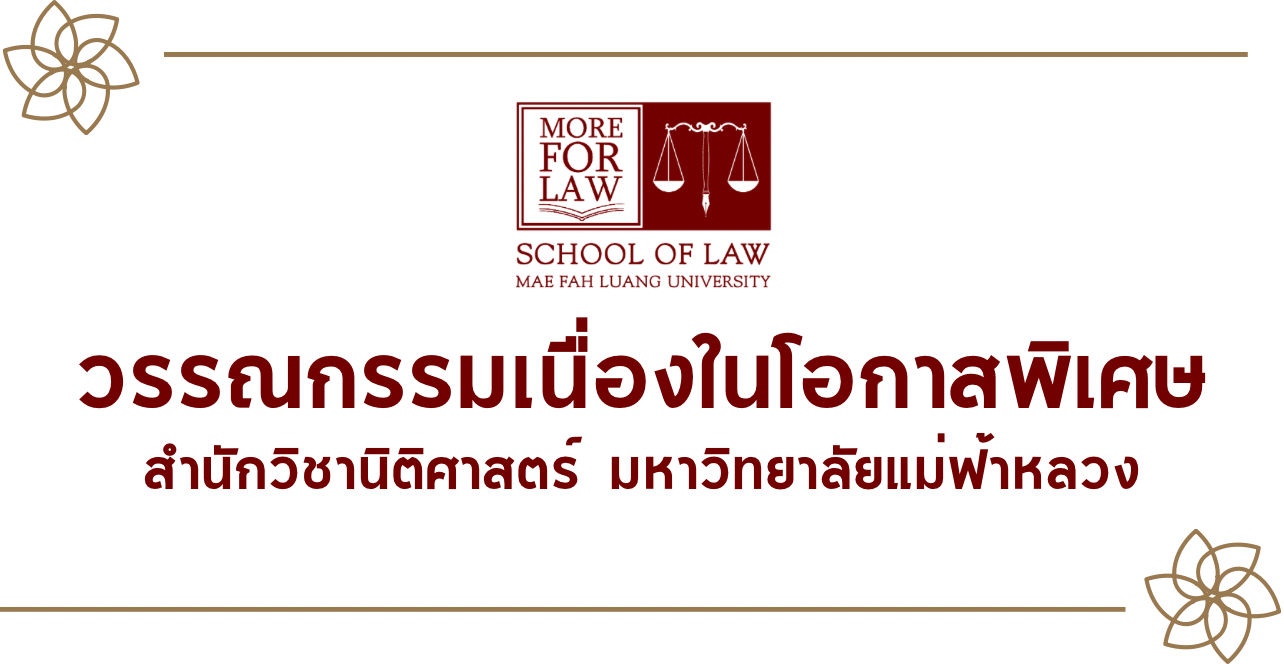Learning Impacts in Law Courses from the Case of the Coronavirus (COVID-19) Pandemic on Law Students at the Faculty of Humanities and Social Sciences, Valaya Alongkorn Rajabhat University under the Royal Patronage
DOI:
https://doi.org/10.14456/mfulj.2021.6Keywords:
Coronavirus (COVID-19), Law, Thai Qualifications Framework for Higher Education: TQFAbstract
Education is one of the public services that have been impacted by the coronavirus (COVID-19) pandemic. Law courses are responsible for providing suchpublic services; both teachers and students are inevitably affected. This qualitativestudy relied on documentary research and in-depth interviews that included 67 law students (100%) and 5 full-time professors (100%). The results were as follows. First, as for the learning impacts in law courses organized during the coronavirus pandemic on the law students, it was found that when they were exposed to online learning and assessment, different internet networks and online learning programs had the greatest impact on their learning. Also, the modified assessment that relied on open-ended exams made the students unable to understand the content and explain their knowledge, which resulted in their inability to pass some courses. Second, as for the learning impacts according to the five learning standards of the Higher Education Qualifications (TQF), the results were as follows. First, in terms of moral and ethical learning, it was found that morality and ethics were learning about personal behaviors that came from conscious-ness. However, if there were close interactions from the teachers’ behaviors, which would affect the students’ feelings, there might be imitation behaviors among the students. Second, in terms of knowledge learning, it was found that providing guidelines in the process that led to more advanced research methods would mean that the students should be taught closely and allowed to react promptly. If done online, there would be communication delays and boredom from such learning. Third, as for cognitive skill learning, it was found that the ability to use and interpret laws, compare or find appropriate criteria or alternatives, and adapt them to explain facts or solve problems was most affected according to the teachers’ assessment. Fourth, in terms of interpersonal skill and responsibility learning, it was found that as for their interpersonal skills and responsibility for one another in actual classrooms, the students were quick in completing given assignments. Fifth, as for numerical, communication, and information technology skills learning, it was found that the COVID-19 pandemic resulted in the students’ lack of such skills. This was because online learning hindered the continuous development of those skills, which resulted in the students’ inability to manage their learning process.
From the findings, it is suggested that the government must be ready to cope with future pandemics in order to push public education services forward. Education problems should also be learned structurally. Moreover, teachers should help the students study on their own. Finally, when teaching certain topics, teachers should use evaluation and assessment technics that reduce the stress of both the students and the teachers themselves such as open-ended exams.
Downloads
References
กัลยา ศรีปาน, การศึกษาคุณธรรมจริยธรรมของนักเรียนระดับประถมศึกษา โรงเรียนบุญเลิศอนุสรณ์ สำนักงานคณะกรรมการการศึกษาเอกชนจังหวัดสงขลา, ปริญญานิพนธ์ กศ.ม. (การบริหารการศึกษา), บัณฑิตวิทยาลัย มหาวิทยาลัยทักษิณ (สงขลา, 2542).
ทิพย์ หาสาสน์ศรี, การพัฒนาคุณธรรมจริยธรรมนักเรียนโรงเรียนสาธิตมหาวิทยาลัยรามคำแหง, มหาวิทยาลัยรามคำแหง (กรุงเทพมหานคร, 2553).
ภูมิศรัณย์ ทองเลี่ยมนาค, กองทุนเพื่อความเสมอภาคทางการศึกษา (กสศ.) [ออนไลน์], แหล่งที่มา: https://thaipublica.org/2020/04/19-economists-with-covid-19-15/1
วิภาวรรณ ถิ่นจันทร์ และคณะ, การใช้สื่อสังคมออนไลน์เพื่อการเรียนการสอน: กรณีศึกษาอาจารย์คณะมนุษยศาสตร์และสังคมศาสตร์ มหาวิทยาลัยราชภัฏสวนสุนันทา, มหาวิทยาลัยราชภัฏสวนสุนันทา (กรุงเทพมหานคร, 2560).
ศุภชัย ศรีสุชาติ, การศึกษาวิจัยเปรียบเทียบการนำผลการวิจัยไปใช้ประโยชน์ด้านการศึกษาบทเรียนจากนานาประเทศ, สำนักงานศูนย์วิจัยและให้คำปรึกษาแห่งมหาวิทยาลัยธรรมศาสตร์, มหาวิทยาลัยธรรมศาสตร์ (กรุงเทพมหานคร, 2563).
อดิสรณ์ อันสงคราม, ผลกระทบจากการใช้สื่อโซเชียลมีเดียของคนวัยทำงานในกรุงเทพมหานครและปริมณฑล เกี่ยวกับการใช้โลกออนไลน์มากกว่าการใช้ชีวิตในโลกแห่งความจริง, คณะนิเทศศาสตร์ มหาวิทยาลัยศรีปทุม (กรุงเทพมหานคร, 2556).
อ้อทิพย์ ราษฎร์นิยม และประพาฬ เฟื่องฟูสกุล, การประเมินผลการเรียนรายวิชาในหลักสูตรเศรษฐศาสตรบัณฑิต มหาวิทยาลัยศรีนครินทรวิโรฒ, มหาวิทยาลัยศรีนครินทรวิโรฒ (กรุงเทพมหานคร, 2552).
Bayham and Fenichel, Impact of school closures for COVID-19 on the US health-care workforce and net mortality: a modelling study. The Lancet, Volume 5 Issue 5 (May 2020).
Hanushek and Woessman, Education Knowledge Capital and Economic Growth in Economics of Education, 2nd (2020) [Online], Source: http://hanushek.stanford.edu/publications/quantitative-look-economic-impact-european-union%E2%80%99s-educational-goals
The Brookings Institution, Brookings Report (2017) Summer learning loss: What is it, and what can we do about it? [Online ], Source: https://www.brookings.edu/research/summer-learning-loss-what-is-it-and-what-can-we-do-about-it/
World Health Organization, Report of the WHO-China, Joint Mission on Coronavirus Disease 2019 (COVID-19). WHO.Coronavirus disease (COVID-19) advice for the public, [Online], Source: https://www.who.int/publications/i/item/report-of-the-who-china-joint-mission-on-coronavirus-disease-2019-(covid-19)
Downloads
Published
How to Cite
Issue
Section
License
Copyright (c) 2021 Mae Fah Luang University Law Journal

This work is licensed under a Creative Commons Attribution-NonCommercial-NoDerivatives 4.0 International License.






